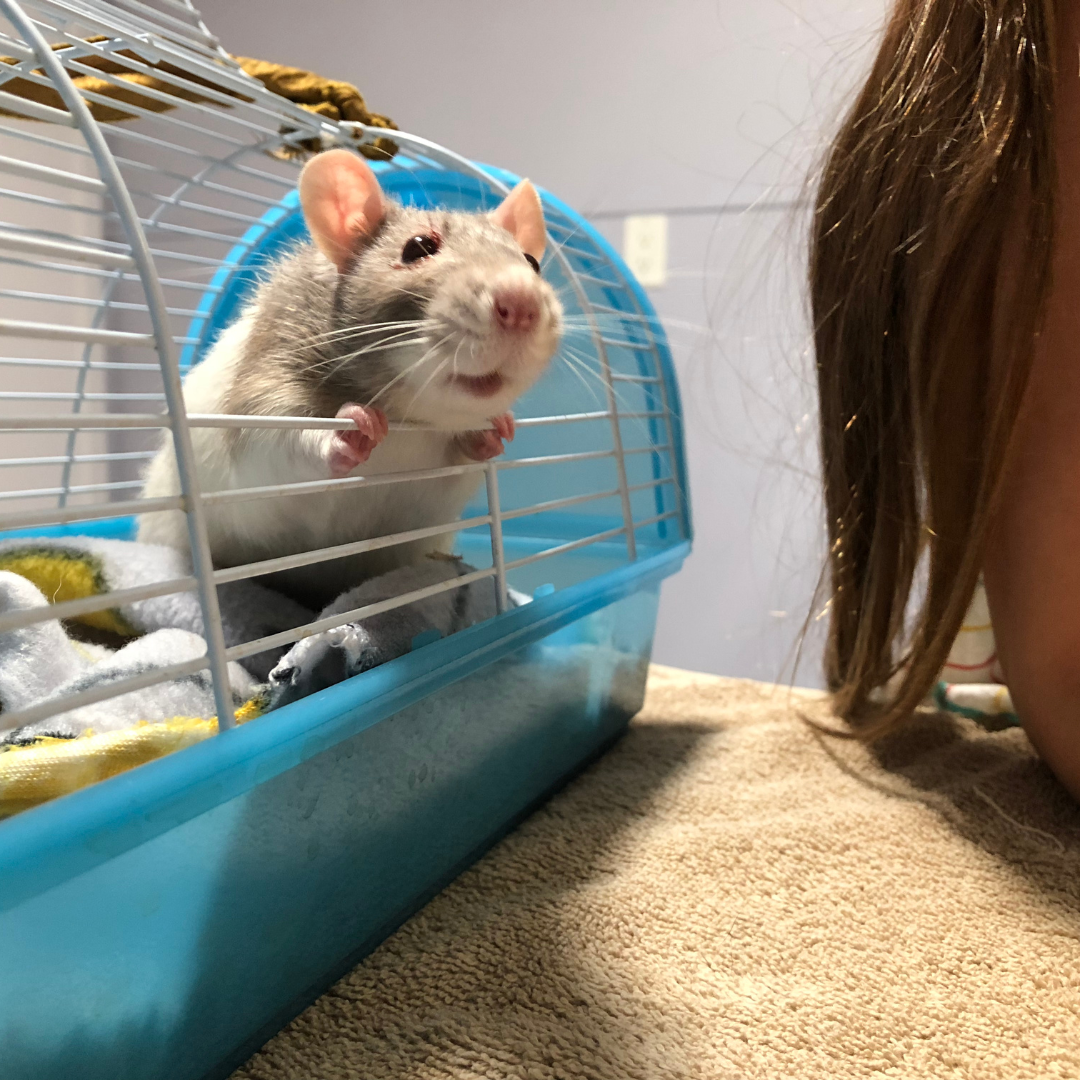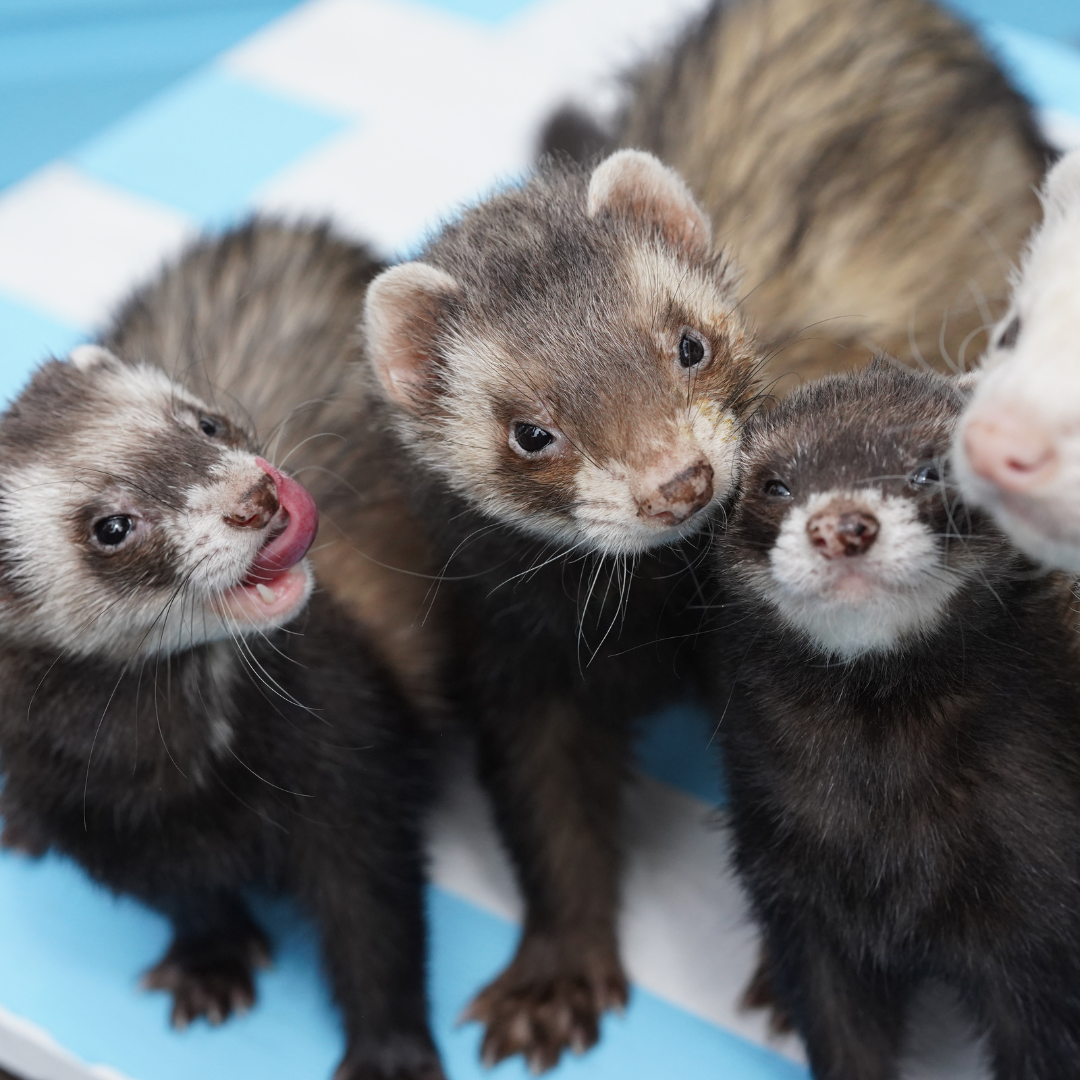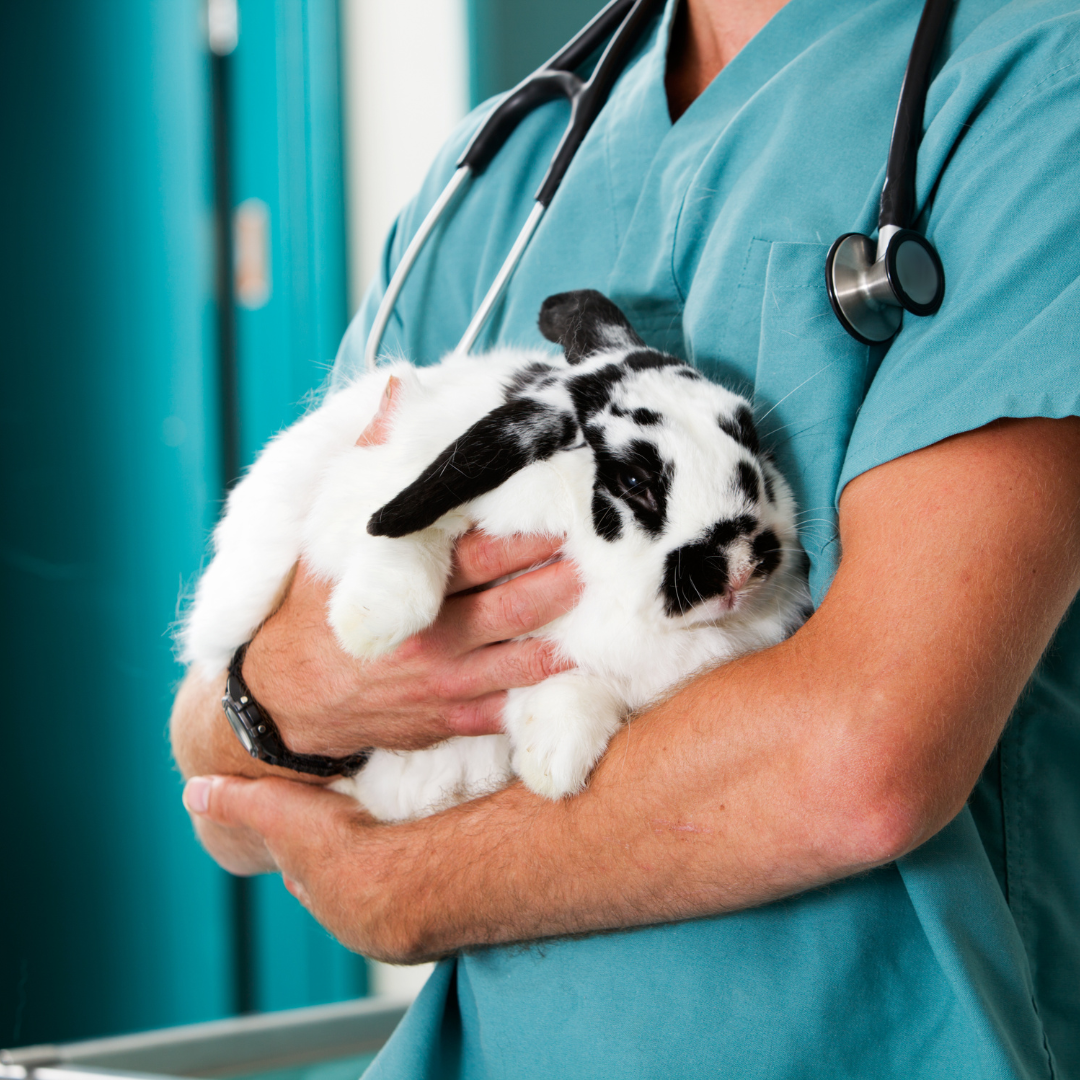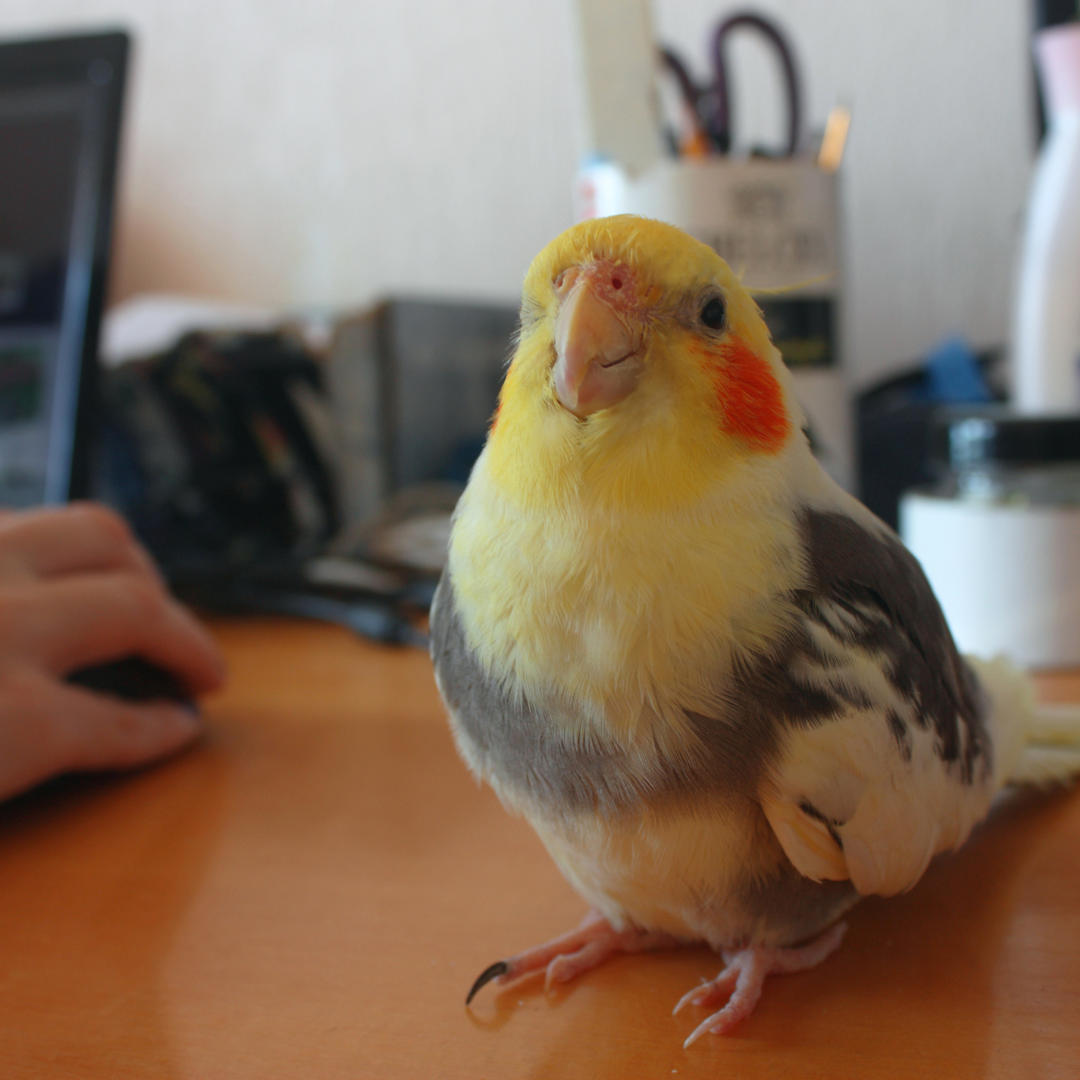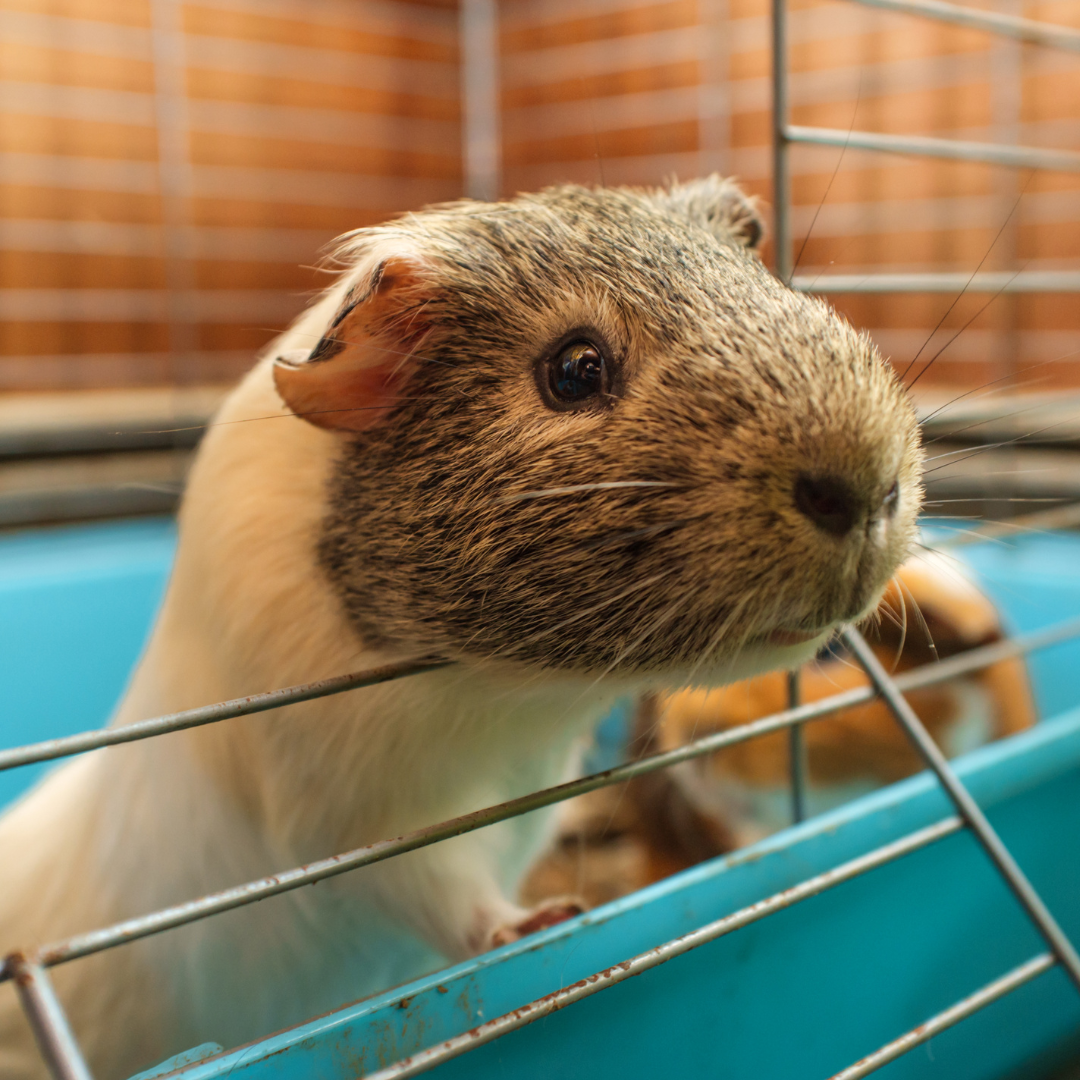Just like dogs and cats, exotic pets need health checks too. Health checks are a great way to keep your exotic pet in their best possible shape. They also help your vet identify and treat any health concerns before they become serious. A full examination allows your vet to take a closer look at your pet, whilst also giving you the opportunity to ask about any questions or concerns you might have such as nutrition, exercise, grooming, dental care and preventative healthcare.
At Woofpurnay we recommend annual health checks for all pets, including exotics. Younger pets may require additional visits to give them their best possible start and commence any vaccinations. Senior pets can benefit from bi-annual health checks to meet your pets changing health care needs and ensure early detection and treatment of disease.
What is an exotic pet?
Most veterinary clinics consider anything that is not a dog, cat or farm animal an exotic pet. Common exotic pets in Australia can include rabbits, guinea pigs, ferrets, rats, mice, birds and reptiles.
An exotic pet is one that does not belong to the seven domesticated species of dogs, cats, horses, pigs, cows, sheep or goats.
Do all vets treat exotic pets?
If you have an exotic pet, you will need to research a local vet that specialises in treating your pet species. Having access to the right vet care is important when you own an exotic pet as they have unique healthcare requirements. At Woofpurnay Veterinary Hospital we offer exotic pet care for rabbits, guinea pigs, ferrets, rats, mice, birds and reptiles.
Why are health checks important for exotic pets?
Early disease detection
One of the key benefits of a regular health check is the potential to detect any early signs of illness. There may be small changes in your pet’s behaviour or condition that your vet can detect as a warning sign. Early disease detection can allow a treatment program to be put in place at the earliest possible stage, increasing the chance of a positive outcome.
Preventative treatment
There are a number of animal diseases that can be prevented with the help of your vet. Vaccinations are available for rabbits and ferrets, helping protect them from certain diseases. A parasite prevention program can also help deter nasty fleas, ticks and worms. Our vets can help you determine the most suitable preventative healthcare program to protect your pet.
Nutrition
Exotic pets have specific nutritional requirements. Offering a complete and balanced diet designed for their species is important for their overall health and wellbeing. A knowledgeable exotic animal vet can provide you with the diet and nutrition information you require to feed your exotic pet what they need.
Behaviour & appearance
Subtle changes in your pet’s behaviour or appearance can indicate pain or illness. Many exotic pets are susceptible to heat stress or sudden changes in temperature so need special care and attention. Changes can include eating habits, weight, toileting, skin/fur/feather health, general behaviour and overall health and wellbeing. Please discuss any of your pet’s changes with your vet. The earlier our vets can determine the cause, the sooner a treatment plan can be put into place to help your pet recover.
Dental hygiene
Caring for your exotic pet’s teeth is important. A complete and balanced diet for your species plays a key role in dental health. For example, a rabbit and guinea pig’s teeth are constantly growing so regular eating and plenty of roughage helps keep their teeth trim and healthy. Exotic pets should have their mouth examined as part of their annual health check.
Lumps and bumps
Small skin masses can often go undetected as they are covered by hair or feathers or located in inaccessible areas. A clinical examination can potentially uncover any hidden lumps and bumps. In such cases, accurate diagnosis and early removal if necessary are important to maximise the chances of a good outcome.
Nail trims
Trimming the nails of a wiggling rabbit or a flapping bird can be challenging, especially if you are by yourself. Some exotic pet nails don’t need trimming if they are naturally worn down on abrasive surfaces. Overgrown nails can be unpleasant for the owner if you get accidently scratched during play and for the pet who can catch their nails on clothing or objects which can cause them to bleed. Vets familiar with exotics are generally comfortable trimming your pet’s nails, making grooming simple and safe.
What to expect at a routine exotic pet’s health check
During your visit your exotic pet will be given a thorough examination which generally includes your pets weight, body condition, skin, fur, feathers, eyes, ears, teeth and mouth.
Depending on your exotic species, vaccinations and parasite control can also be an important part of your pet’s health check. Your vet will ask lots of questions about your pet’s health and it is a great opportunity for you to chat about any concerns or questions you might have too such as nutrition, weight and behaviour.
If your vet has any concerns, he or she may suggest further testing, such as a faecal evaluation or blood test.
How often should you take your pet for a health check
At Woofpurnay we recommend annual health checks for all exotic pets, for rabbits and ferrets that is usually at the time of their yearly vaccination. Younger pets and senior pets may require more frequent visits.
Regular health checks are a great way to keep your exotic pet in their best possible shape. If you have any concerns about your exotic pet or if you would like to book a health check call us on 03 8784 4444.


